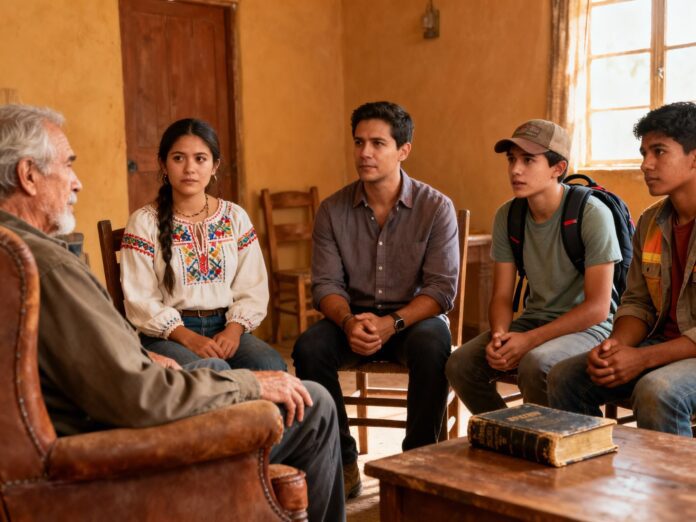Your grandfather settled down each morning with his worn Bible, alone in his favorite armchair, silently perusing the same familiar verses. This touching image of individual devotion has shaped our understanding of biblical reading for generations. Yet, in the hills of Guatemala, the favelas of Brazil, and the remote villages of Peru, a quiet revolution is transforming how communities engage with Scripture.
This transformation does not reject tradition—it reinvents it. The methods developed in the grassroots communities of Latin America reveal how a collective approach can unlock spiritual dimensions that solitary reading cannot reach. These discoveries challenge our inherited habits and open unexpected perspectives on the biblical experience.
The Legacy of Our Ancestors: Beauty and the Limits of Individual Reading
The tradition of individual Bible reading carries undeniable beauty. It cultivates intimacy with the divine, encourages personal meditation, and allows for a direct dialogue between the believer and the sacred text. Our grandparents drew from this practice a source of comfort, guidance, and spiritual growth that has endured the test of time.
This personal approach fosters deep concentration and allows each reader to receive what their soul needs in the present moment. Silence becomes a sanctuary where words take root in the heart, where prayer arises naturally from reading, where the Spirit whispers its most intimate secrets.
However, this traditional method reveals its limitations in our modern era. Reading alone can lock us into our own cultural and economic perspectives, creating a partial understanding that reflects our personal biases more than the richness of the biblical message. When we interpret alone, we risk projecting our limited experiences onto texts that speak to all humanity.
The solitude of interpretation can become a gilded prison, where our unquestioned certainties prevent us from discovering the multiple facets of spiritual truth. It is precisely this limitation that grassroots communities have identified and transformed into an opportunity.
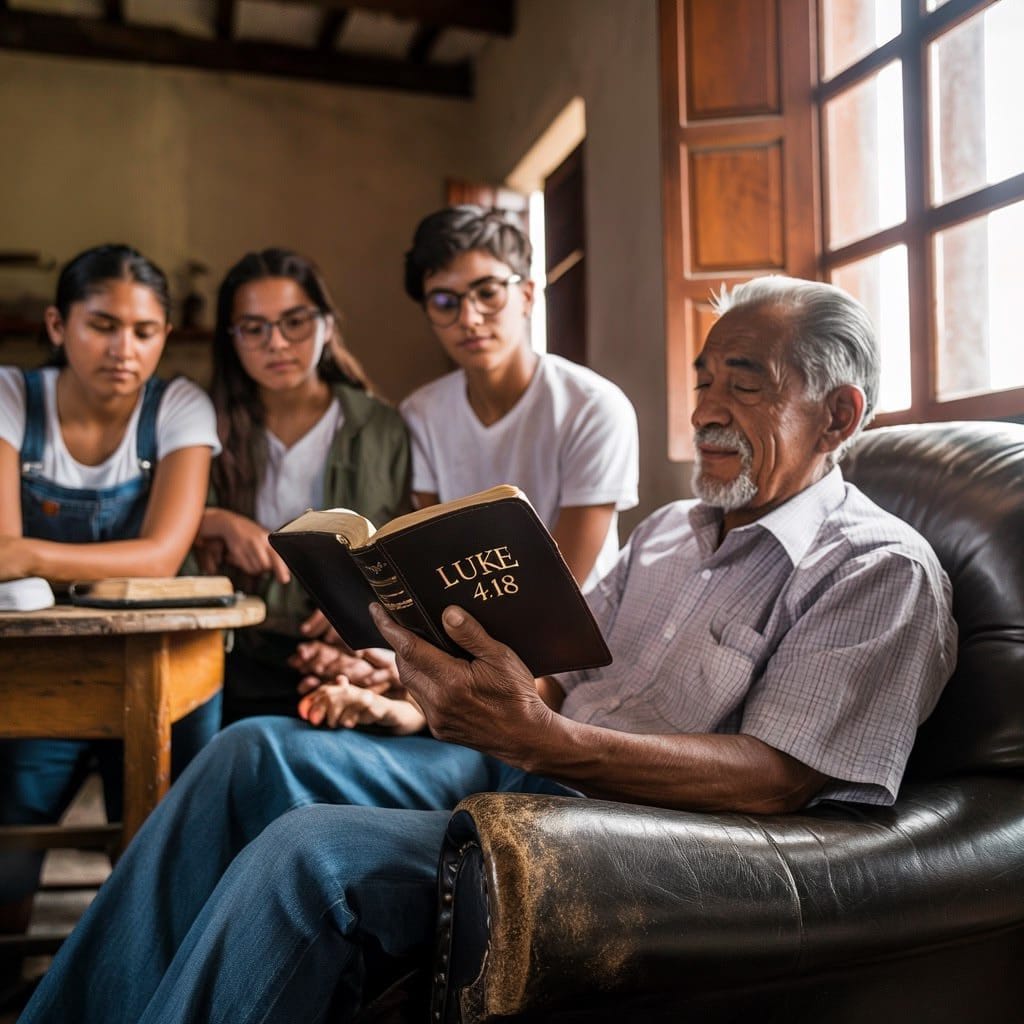
The revolutionary emergence of grassroots communities
In the years following Vatican II, something extraordinary began to blossom in the most humble communities of Latin America. Far from ornate cathedrals and academic seminaries, groups of ordinary believers began to gather to read Scripture together, bringing their life experiences as a key to interpretation.
These grassroots communities discovered that the Bible spoke differently when read by multiple voices, when a worker's questions met a mother's, when a farmer's experience illuminated a teacher's perspective. This collective approach revealed dimensions of the biblical text that remained invisible in solitary reading.
The major innovation of these communities lies in their participatory approach. Instead of passively listening to an expert's interpretation, each member contributes to the collective understanding. This approach democratizes access to spiritual meaning and recognizes that the Spirit can speak through each person's experience, regardless of their theological training.
This quiet revolution has transformed entire communities, creating stronger social bonds, a heightened social conscience, and a faith more embodied in everyday realities. Participants discover that their personal experiences become a legitimate prism for understanding biblical teachings.
The Wisdom of Interpretive Diversity
Imagine a parable of Jesus read simultaneously by an urban entrepreneur, a rural farmer, a student, and a grandmother. Each brings their own reading grid, their specific questions, and their personal challenges. This multiplicity of perspectives doesn't create confusion—it reveals the polysemic richness of sacred texts.
There collective reading acts like a prism that breaks the light of the text into its many colors. Where individual reading might see only one meaning, the community discovers a symphony of mutually enriching meanings. This approach honors the inherent complexity of Scripture while maintaining its fundamental unity.
This method also reveals how our social, economic, and cultural contexts naturally influence our understanding. Rather than denying these influences, collective interpretation embraces them and transforms them into hermeneutic resources. Every life experience becomes a legitimate gateway to spiritual truth.
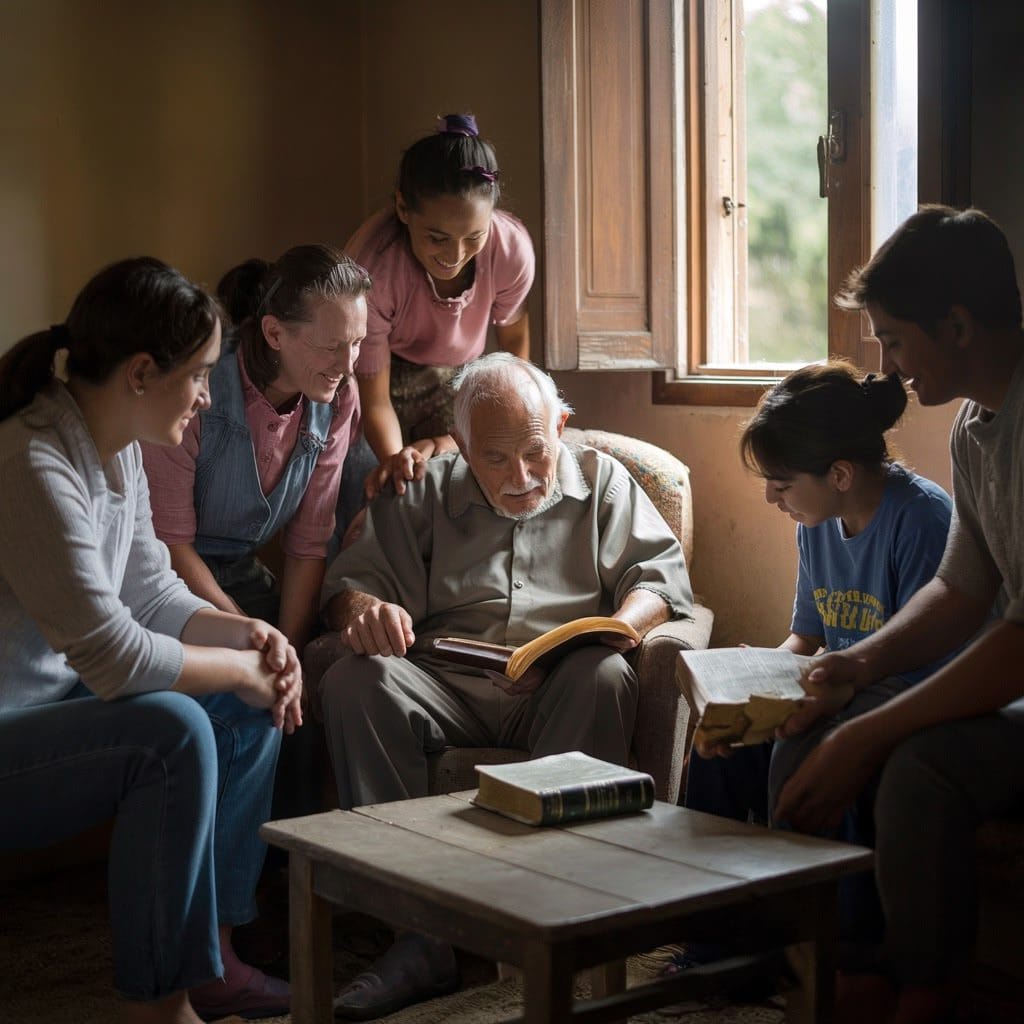
Intercultural dialogue as a truth revealer
One of the most surprising discoveries of participatory methods concerns the importance of intercultural dialogue in biblical interpretation. When people of different backgrounds gather around the same text, their exchanges reveal aspects of God's message that remained hidden in cultural homogeneity.
This intercultural dimension profoundly enriches the spiritual experience. A biblical story resonates differently in the experience of a migrant than in that of a person rooted for generations. These distinct resonances do not conflict—they complement each other and reveal the universal scope of the spiritual message.
Intercultural dialogue in biblical interpretation also builds bridges of understanding between communities. It becomes a tool for social reconciliation, allowing groups that are usually wary of one another to discover their common aspirations. This social dimension of biblical reading transforms the study of Scripture into an act of community building.
The authenticity of this approach lies in its ability to simultaneously honor the transcendence of the sacred text and the immanence of human experience. It recognizes that God speaks through diversity rather than in spite of it, and that this diversity enriches our understanding rather than threatening it.
The Art of Collective Spiritual Listening
The practice of collective listening develops unique spiritual skills. It requires temporarily suspending one's own certainties to welcome the perspective of another. This discipline of listening gradually transforms our personal relationship with the biblical text, making us more sensitive to the nuances and subtleties of the divine message.
This collective listening also cultivates hermeneutic humility—the recognition that our individual understanding, however rich, remains partial. This humility does not weaken faith—it deepens it by revealing the immensity of the divine mystery that always surpasses our individual capacities for understanding.
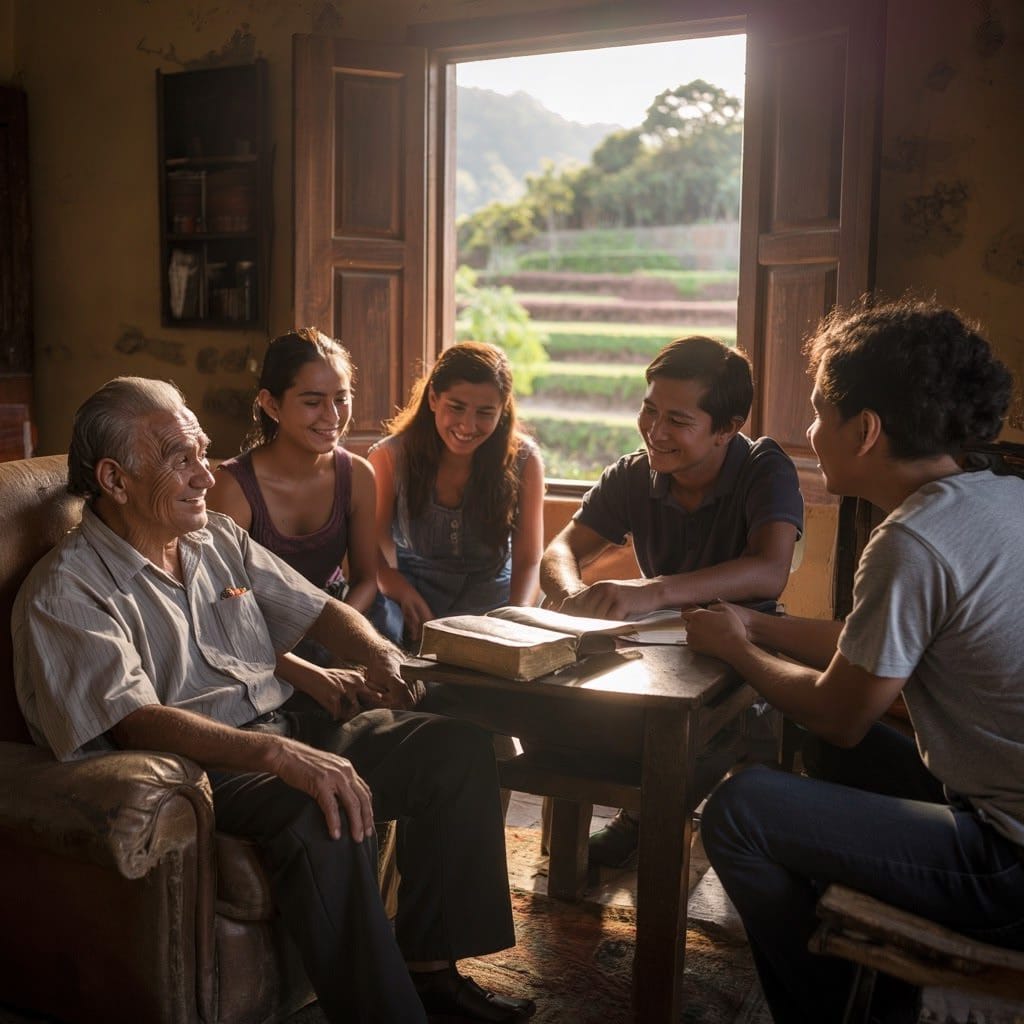
Participatory Methods: Transforming Bible Study into a Living Experience
Participatory methods developed in grassroots communities offer concrete approaches to renew our Bible reading practice. These techniques transform the study of Scripture from an intellectual exercise into a communal spiritual experience.
The first innovation is to begin each session by sharing life experiences. Before opening the Bible, participants discuss their current concerns, joys, and challenges. This practice creates an emotional and spiritual context that allows the biblical text to resonate with lived realities.
The approach of the "echo reading" is another revolutionary technique. After reading the biblical passage, each participant shares a word, phrase, or image that particularly touched them. These echoes multiply and enrich each other, creating a collective understanding that goes beyond the sum of individual perspectives.
The open-ended question method also transforms the traditional dynamic. Instead of searching for "the right answer," the group explores together questions such as, "What does this text reveal about human nature?" or "How does this story shed light on our current challenges?" These questions encourage exploration rather than jumping to conclusions.
The embodiment of the message in collective action
A distinctive feature of participatory methods lies in their orientation toward concrete action. Collective understanding of the biblical text naturally translates into community commitments, solidarity projects, and initiatives for social transformation.
This practical dimension avoids the pitfall of excessive intellectualization. It keeps the biblical reading anchored in everyday realities and gives it immediate relevance. Participants discover that their spiritual understanding unfolds through the shared action inspired by their collective study.
This approach also reveals how biblical spirituality naturally leads to social engagement. Far from being an escape from the world, communal reading of Scripture becomes a call to transform the structures that maintain injustice and exclusion.
How these new approaches enrich spiritual understanding
The transformative impact of these participatory methods on spiritual understanding is manifest in multiple ways. First, they reveal the intrinsically communal dimension of the Christian faith. The Bible is no longer seen as a book of individual recipes for personal happiness, but as the story of a people's journey toward justice and love.
This collective approach also enriches our understanding of fundamental spiritual concepts. The notion of salvation, for example, is revealed in its communal and social dimension, going beyond the purely individual perspective to embrace collective transformation. Love of one's neighbor ceases to be an abstract concept and becomes a concrete practice of solidarity.
Participatory methods also reveal how experiences of marginalization and exclusion can become privileged keys to understanding the biblical message. Voices usually silenced in traditional communities—women, the poor, minorities—bring unique insights into texts that speak of justice, liberation, and inclusion.
This democratization of interpretation does not relativize biblical truth – it reveals its infinite richness. It shows how the divine message can speak simultaneously to very different situations, how it can console the afflicted and challenge the contented, how it can guide the lost and challenge the settled.
The revival of the prophetic dimension
One of the most significant discoveries of these new approaches concerns the rediscovery of the prophetic dimension of Scripture. Collective reading, particularly when it includes the voices of the marginalized, reveals how biblical texts challenge unjust social structures and call for transformation.
This prophetic dimension is not only manifested in the interpretation of texts – it emerges from the very dynamics of collective reading. When people from different social backgrounds share their perspectives, inequalities become visible, exclusions are revealed, and calls for justice resonate with new force.
This rediscovery gradually transforms the participants' spirituality. Their faith becomes less abstract, more embodied, and more oriented toward building a more just world. It reveals how fidelity to the Gospel necessarily implies a commitment to the dignity of all.
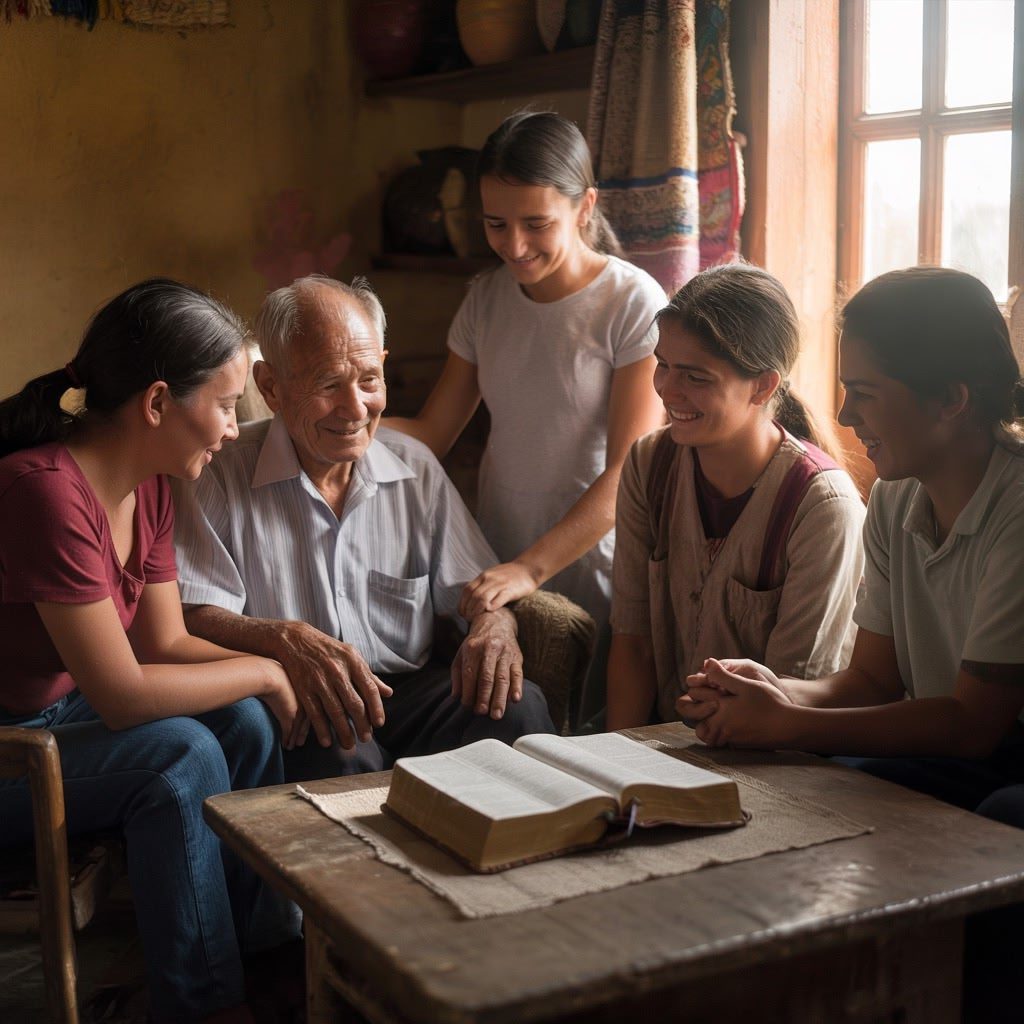
Towards an authentic contemporary spirituality
These new approaches to biblical reading do not constitute a break with tradition—they represent a deepening of it for our times. They maintain reverence for the sacred text while recognizing that its understanding unfolds through the diversity of human experiences.
This evolution responds to the specific challenges of our contemporary world: excessive individualism, social divisions, mistrust between communities, and the search for meaning in a context of rapid change. Participatory methods offer concrete resources for building bridges, creating social bonds, and nurturing both personal and community spirituality.
The authenticity of this approach lies in its simultaneous fidelity to the biblical message and the needs of our time. It does not dilute the spiritual requirement – it reveals it in its contemporary relevance. It does not simplify the complexity of the texts – it reveals their capacity to speak to all human situations.
This contemporary spirituality also cultivates emotional and relational maturity. She learns to navigate diversity without losing her bearings, to maintain her convictions while remaining open to learning, to combine fidelity and creativity in understanding her faith.
The art of balance: tradition and innovation
Integrating these new methods into our spiritual practice requires an art of balance between preserving what has nourished us and opening ourselves to what can enrich us. This integration is not achieved by substitution but by complementarity.
Personal reading retains its precious place as a moment of intimacy with the divine, of silent meditation, of personal dialogue with the Scriptures. It nourishes the contemplative dimension of our faith and cultivates our personal relationship with God. But it finds its natural complement in the communal experience that reveals other facets of the same mystery.
This complementarity enriches both approaches. Personal reading becomes more sensitive to the social dimension of the biblical message, while collective reading gains contemplative depth. This creative synthesis honors the legacy of our ancestors while opening new spiritual horizons.
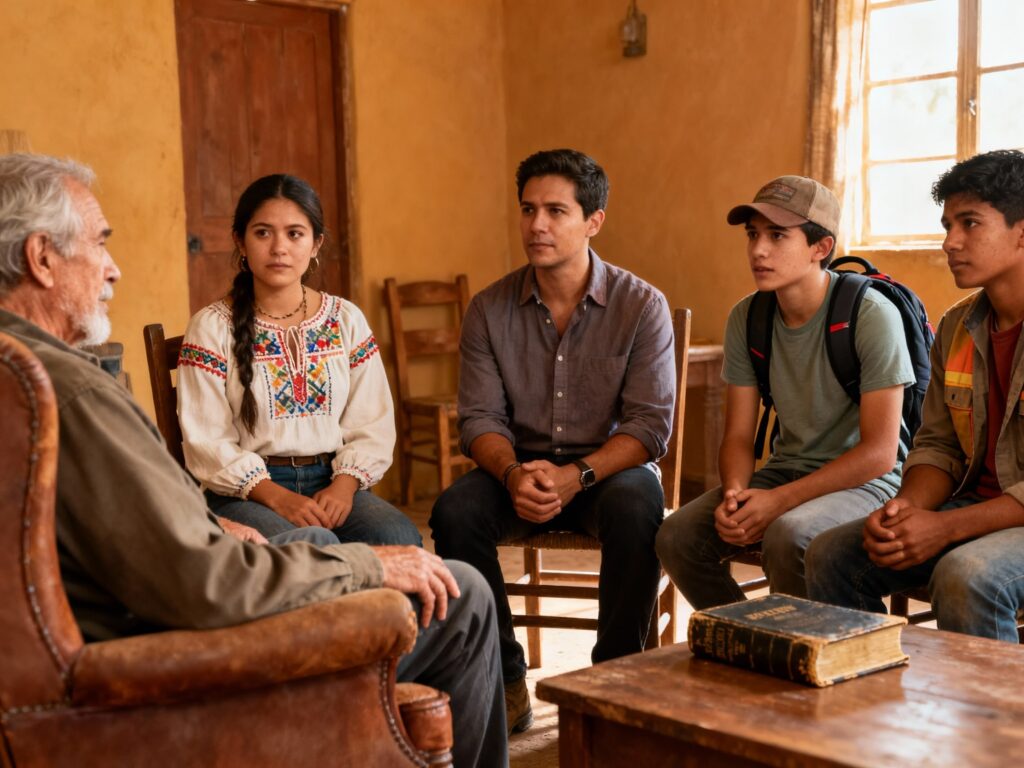
Transform Your Spiritual Experience Today
Adopting these new approaches doesn't require a personal revolution—it simply requires openness to spiritual experimentation. Start by incorporating small elements of collective reading into your regular practice. Invite a few friends or family members to occasionally share your Bible reading time.
Experiment with open-ended questions in your personal reflection. Instead of immediately seeking the practical application of a passage, let it resonate with you, question your reactions, and explore connections with your life experience. This more contemplative approach often reveals surprising insights.
Seek diversity in your spiritual exchanges. Engage in conversations about faith with people from different backgrounds, listen to stories from communities you're unfamiliar with, and participate in interfaith or intercultural gatherings. These opportunities naturally enrich your understanding of biblical texts.
Cultivate the art of spiritual listening. In your conversations about faith, focus less on conveying your own beliefs than on discovering what the Spirit reveals through the experiences of others. This discipline gradually transforms your relationship with spiritual truth.
The Adventure of Spiritual Discovery There is no age limit. Our grandparents lived their time with the resources of their time. We can honor their legacy by enriching it with the discoveries of our time, thus creating a synthesis that nourishes both our thirst for authenticity and our need for community.
This transformation abandons nothing essential—it reveals hidden treasures. It does not threaten tradition—it enlivens it. It does not weaken individual faith—it strengthens it through communion with other seekers of truth. In this creative synthesis of heritage and innovation, our spiritual experience finds its contemporary fullness.
Your spiritual journey can be enriched by this collective wisdom right now. All you have to do is take the plunge, dare to be open, and trust the Spirit's ability to speak through human diversity. This adventure awaits you, rich in promise and unexpected discoveries.


